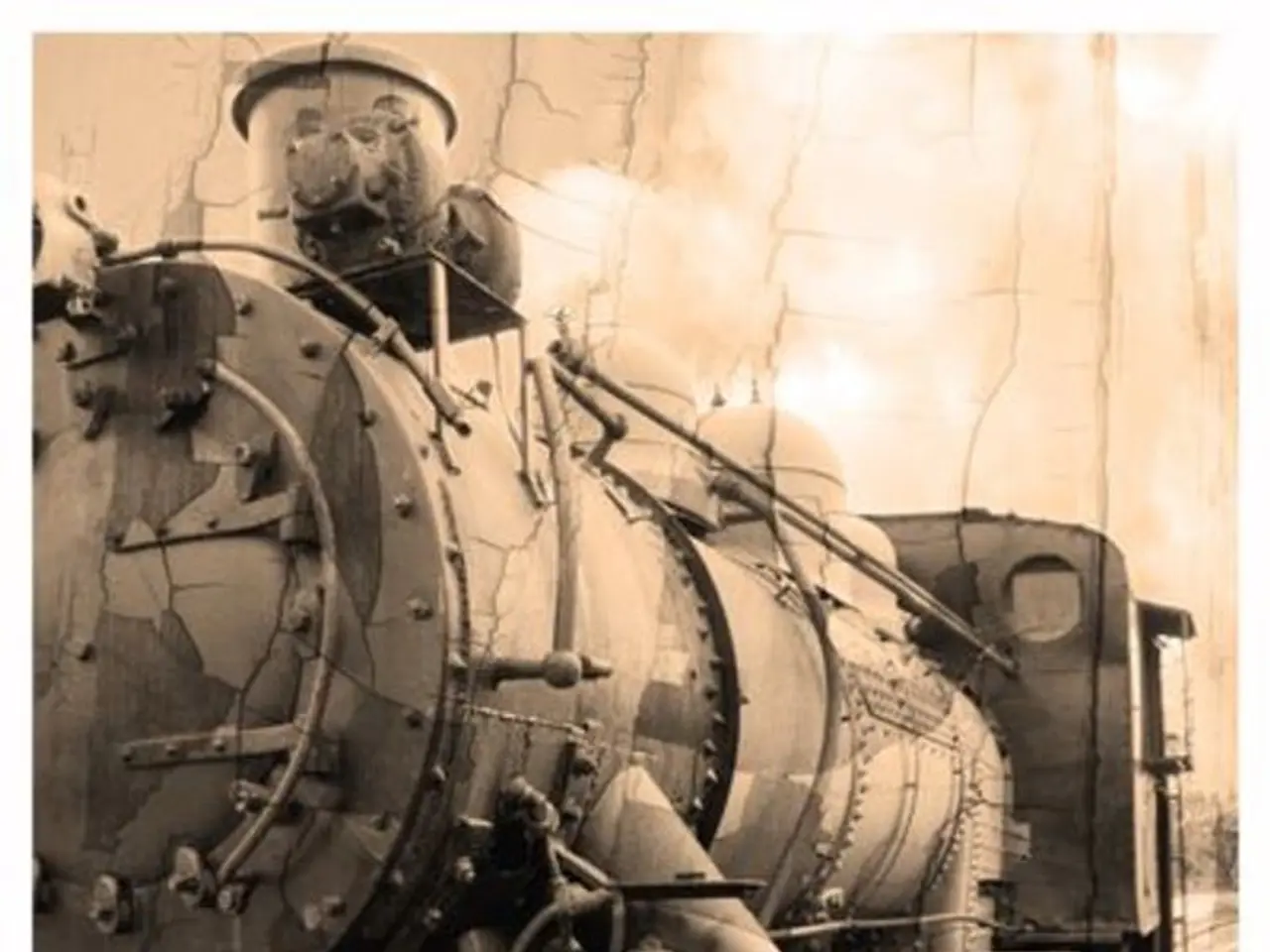Railway Manager Faces Ahead Various Challenges
New Challenges Await Deutsche Bahn's Next CEO
Deutsche Bahn, Germany's national railway company, is currently in search of a new CEO following the dismissal of Richard Lutz. The successor's task will be a formidable one, as they navigate a multitude of challenges that range from improving punctuality and modernising infrastructure, to managing political expectations, securing adequate funding, and addressing complex labour relations.
The new CEO will inherit a company facing persistent criticism for delays and poor reliability, contributing to dramatic customer dissatisfaction. The need for structural and personnel reorganisation suggests significant pressure to improve and modernise the ageing railway infrastructure.
Political involvement and oversight are also key factors in the CEO replacement, as the decision comes at the behest of the Federal Transport Minister and involves coordination with government and supervisory boards. Major public transport operators like Deutsche Bahn typically face funding constraints impacting operations and investments, especially amid calls for reorganisation.
One of the critical issues for the new CEO will be the upcoming wage negotiations with the GDL, the train drivers' union. Historically, such negotiations significantly affect operations and labor relations. The timing of the leadership change and current tensions at Deutsche Bahn imply that these negotiations will be a crucial test for the new CEO.
Another challenge lies in the focus on renovating the existing network, with no funds available for new or expansion projects. The Riedbahn between Frankfurt and Mannheim was the first to undergo comprehensive renovation last year, and the Hamburg-Berlin route is currently being renovated, causing initial disruption for passengers.
The "Germany timetable" aims to connect main long-distance routes at half-hour intervals, improving transfer options and reducing travel times. However, the massive investment backlog in the high double-digit billions, due to decades of neglect, presents a significant hurdle in achieving this goal.
Federal Transport Minister Patrick Schnieder plans to present a new strategy for Deutsche Bahn on September 22, focusing on customer satisfaction, punctuality, safety, cleanliness, speed, lean operations, agility, and economic efficiency. The approach, while controversial among some transport experts, is generally supported within the industry.
Despite the challenges, the new CEO will have the opportunity to make a significant impact on Deutsche Bahn. Single wagon traffic, not profitable despite federal funding, is important for industries such as steel, chemicals, and building materials, and for climate goals. DB Cargo, a loss-making transport subsidiary, has been ordered by the EU Commission to return to profitability as early as next year.
In conclusion, the new CEO will need to address ongoing punctuality problems, invest in and overhaul infrastructure, navigate political expectations, secure adequate funding, and manage complex labour relations, including wage negotiations with the GDL. The success of the new CEO will be closely watched, and their ability to address these challenges will play a crucial role in shaping the future of Deutsche Bahn.
As of August 24, 2025, no official CEO name has been released yet.
[1] Deutsche Bahn Press Release, "Deutsche Bahn CEO Richard Lutz steps down", August 2025. [2] Deutsche Welle, "Deutsche Bahn faces criticism for delays and poor reliability", July 2025. [3] Tagesspiegel, "The search for a new Deutsche Bahn CEO is difficult and may take longer than expected", August 2025. [4] EU Commission Press Release, "DB Cargo ordered to return to profitability", July 2025. [5] Sueddeutsche Zeitung, "The future of Deutsche Bahn: Challenges and opportunities", August 2025.
- The incoming CEO of Deutsche Bahn will have to address challenges within the finance industry, as securing adequate funding is paramount to overcome operational and investment constraints.
- In addition to managing the company's finances, politics will also play a significant role in the new CEO's responsibilities, given the Federal Transport Minister's involvement in the CEO selection and requirement for coordination with government and supervisory bodies.
- The new CEO will also need to focus on general-news aspects, such as improving business relations with key industries like steel, chemicals, and building materials that rely on single wagon traffic, as well as addressing complex labour issues with unions such as the GDL during upcoming wage negotiations.




